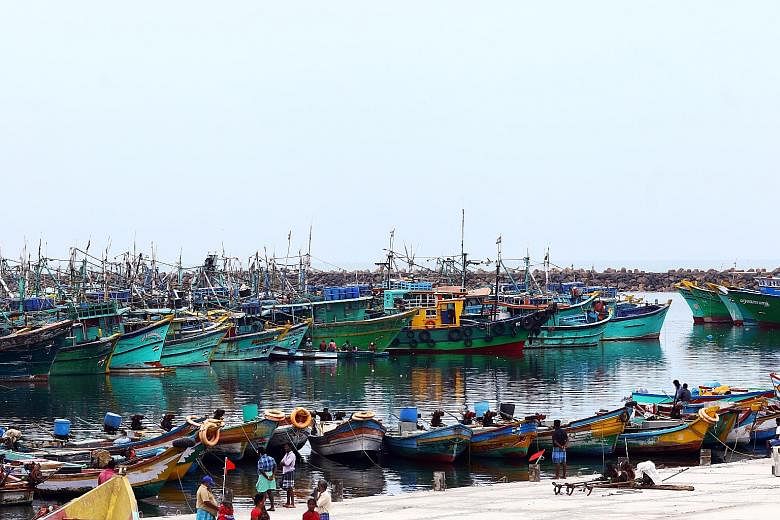As Chennai, the capital of Tamil Nadu, enters a second, more stringent lockdown amid a spike of more than 2,700 Covid-19 cases a day, many citizen volunteers are now collaborating with the government to battle the pandemic.
The southern state of Tamil Nadu has over 62,000 cases, the third highest number of people infected with Covid-19 in India. Nearly 800 people have died. Almost 70 per cent of the infected cases are in Chennai alone, which also accounts for 80 per cent of the deaths.
To rein in the galloping pace of infections, the Tamil Nadu government imposed a stringent 12-day lockdown in Chennai and three adjacent districts. Only pharmacies and hospitals are open. Markets, malls, offices and even roads are closed. Both public and private vehicles are banned on roads except if the driver has a travel pass for medical or relief work.
Ramped-up policing and increased checkposts have ensured that since last Friday, Chennai looks entirely deserted. Crowded market streets such as Pondy Bazaar saw brisk business this month after the Indian government eased the two-month nationwide lockdown, but were forced to keep shutters down again from last Friday to next Tuesday.
Hundreds of boats bob quietly in the fishing harbours as fishing has been banned for almost three months to prevent overcrowding at fish markets. With nothing to do, many fisherfolk are painting their boats or repairing their nets.
A frequent criticism is that the state government mismanaged the outbreak, with deaths underreported last month, a lack of testing and poor contact tracing. Without adequate masks and personal protective equipment, many doctors and nurses have been infected.
Chennai residents hope the second lockdown is a second chance to do it right this time.
The Chennai city corporation is trying to ramp up testing and disease surveillance. Over 250 medically equipped vehicles are screening people in suburban Chennai, particularly the badly affected zones, for coronavirus symptoms. The corporation claimed about 530 fever camps, to screen for symptoms, were being held daily and "focus volunteers" ensured people in quarantine stayed home.
"Whether it's a loss of trust in the government or desperation, there is now a spirit of collaboration among Chennai people. We just have to look out for ourselves," said Ms Vaishnavi Jayakumar, who co-founded non-profit organisation The Banyan. Since the floods in 2015, then the cyclones and now the pandemic, "Chennai has a reliable network of ordinary do-gooders", she said.
When people hoarded hydroxychloroquine, a medication that the World Health Organisation suggested was a possible Covid-19 cure, she said people with rheumatoid arthritis, lupus and other autoimmune conditions who needed this medicine struggled with the shortage. She formed a small group to guide people to the nearest retailer that stocked it.
Among the many other drugs she is helping to source and deliver through a WhatsApp group with about 60 parents nationwide is Vigabatrin, an imported epilepsy drug to stop children's seizures. With courier services stopped, they use "good old Speed Post" to send tablets to those who need it.
After seeing heartrending images of migrant workers walking home during the first lockdown in April, entrepreneur Ravin Carr and dancer Sangeeta Isvaran started the Chennai Migrant Task Force. Its 50-strong volunteer team, including retired army officials who speak Hindi, liaises with stranded migrants, collates data on their needs, supplies groceries or food, and arranges trains and buses with the city corporation and police.
Ms Isvaran said: "I've done relief work during the tsunami, floods and in refugee camps, but the challenge for relief work during Covid-19 is that people can't come out."
Wearing a mask and with a clipboard in hand, she prepared to go to the railway station last night to send off migrants who had waited 23 days for a train to return home to the north-eastern state of Tripura.
A network of 300 Singaporeans have also come together under Project Arpana, a Chennai-based non-profit organisation, to fund cooked meals for 2,500 families in Chennai, especially focusing on manual labourers and ragpickers. "We are just friends helping the impoverished annually for seven years. This year we collated resources for Covid-19 relief," said Mr M. Mathialagan, a television actor in Singapore.
Mr Karthik TM, a theatre actor in Chennai, has ferried so many expecting mothers to hospitals for delivery in the past month that his friends call his Honda Amaze car the "pregnancy mobile". He also used his online stand-up acts and posted messages to hundreds of friends to raise funds for those stranded by the pandemic.
"We are not governments or rich people. We are not heroes. We just do what we can," he said.

